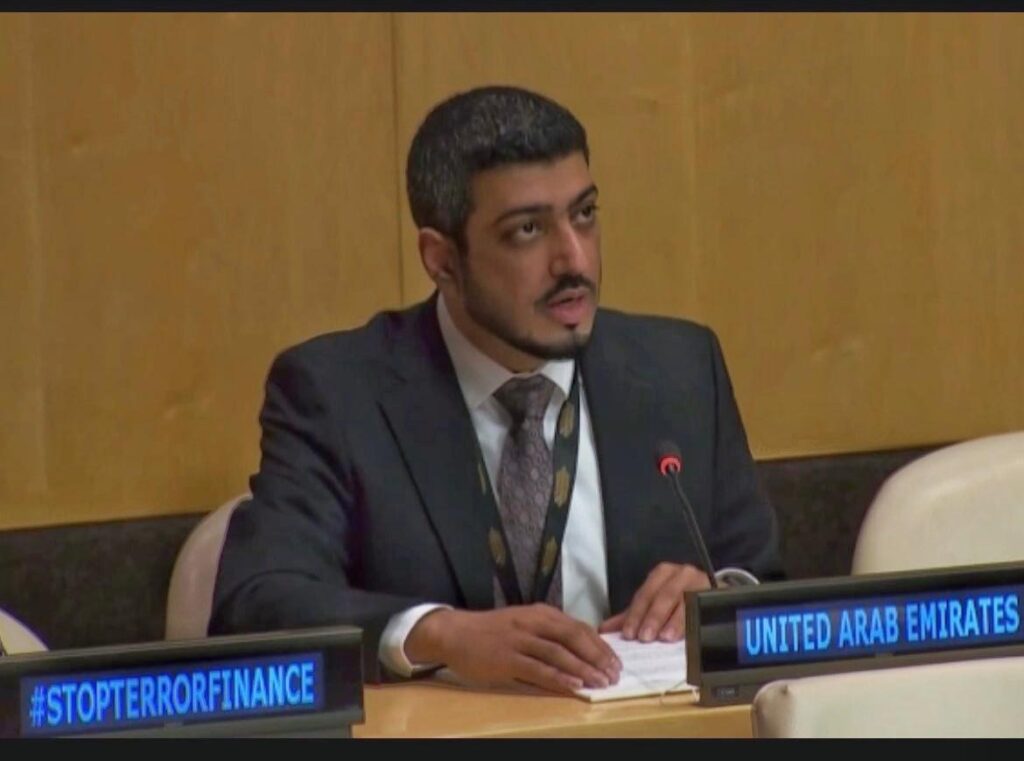On “Terrorist-financing threats and trends and the implementation of Security Council resolution 2462 (2019)”
Check against delivery.
Madam Chair,
Thank you for giving me the floor. I would also like to thank the briefers for their statements and the tremendous value they added to our discussion today.
Despite the international community’s best efforts, the threat of financing terrorism persists. Countering terrorism requires constant vigilance and the monitoring of financial networks to prevent terrorists from orchestrating attacks, recruiting fighters, and funding their activities.
It is essential that states respect their obligations, including under Security Council resolution 2462, a resolution that the UAE was proud to co-sponsor. The resolution reaffirms the fundamental duties of Member States to prevent and suppress the financing of terrorist acts as well as to criminalize the wilful provision or collection of funds intended to be used in acts of terrorism.
To this end, the UAE remains committed to combatting terrorist financing at all levels.
Internationally, we continue to deepen collaboration with global partners on technical cooperation, capacity building, and information exchange. Over the last year, the UAE has held a number of high-level and working-level engagements with partners around the world focused on training, developing best practices, and enhancing protocols for cooperation.
On a national level, we are making every effort to improve our anti-money laundering and counter-financing of terrorism framework (AML/CFT). The Higher Committee overseeing the National Strategy on AML/CFT is playing a central role in guiding progress and ensuring that UAE entities have the necessary resources to make tangible improvements in the UAE’s AML/CFT framework. In tandem, we are also working to enhance our public-private engagement to build awareness and facilitate the implementation of the AML/CFT framework.
Proactively addressing terrorist financing, including through strengthening institutional tools and frameworks, is essential, especially given the evolving nature of this threat. In this regard, we are concerned over the ever-increasing use of virtual assets by terrorists. As new and disruptive financial tools emerge, it is essential to find common principles that will allow us to advance innovation while preventing its exploitation for terrorist purposes.
In closing, we would like to draw attention to two concrete measures recently taken by the UAE:
The UAE has amended and issued Cabinet Decree 74 (2020), with the aim of streamlining terrorist listings and the implementation of UN Security Council resolutions relating to countering terrorist financing. In line with this, and as we have heard today, the UAE’s Executive Office of the Committee for Goods Subject to Import and Export Control has implemented substantive guidelines this year on the implementation of targeted financial sanctions in line with Security Council resolutions and best practices.
The UAE also issued Cabinet Decree 16 (2021) this year regarding a unified list of violations and administrative fines to combat money laundering and terrorist financing. The Ministry of Economy has added 26 such violations and administrative fines to the list thus far.
After implementing such measures, we are prepared to strengthen our regional and global partnerships and share our expertise with our partners.
It is critical to remember that as the challenge of terrorist finance continues to evolve, we must stand united to face it together. I thank you for your kind attention.

